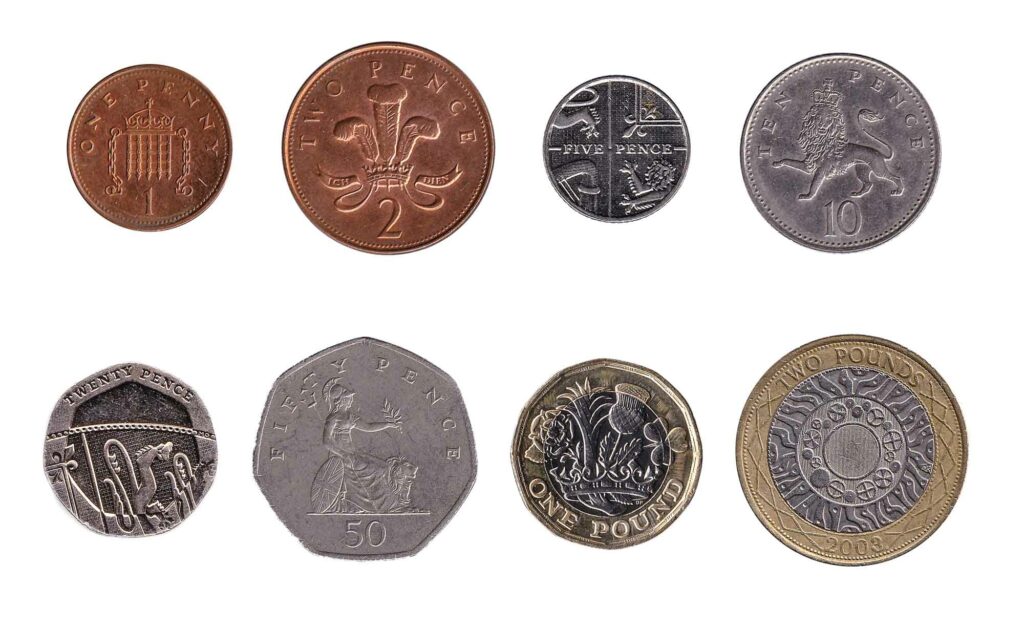From Coins to Contactless: Why 7+/8+ Maths Should Feel Like Real Life
by Exact Science — maths for curious young minds (7–11+)
“Which coin value exists in the US but not in the UK?” A perfectly normal 7+ question… a decade ago. Today, many children rarely use cash. Contactless is the default. No surprise, then, when a bright student recently struggled to recall current UK coin values—because they barely see them in real life.
This isn’t a rant about coins. It’s a reminder that context matters. If the context feels dated, the maths can feel pointless—even when the underlying skill is important.
Coins still teach good maths—just not good engagement
Traditional “money” questions build real skills: place value, regrouping, mental arithmetic, and problem solving under constraints. Those are exactly the skills 7+/8+ exams aim to assess.
But if children rarely handle coins, the story wrapped around the maths becomes noise. When the context gets in the way, motivation drops and careless errors rise. The result: a question that tests familiarity with a fading system rather than the intended thinking.
Key idea: Keep the skills, update the wrappers.
What 7+/8+ exams are really testing
- Number sense & fluency: bonds to 10/20/100, times tables, halving/doubling.
- Reasoning: spotting patterns, making inferences, choosing efficient strategies.
- Careful reading: extracting what matters and ignoring what doesn’t.
- Spatial thinking: shapes, symmetry, nets, simple measures.
- Resilience: trying, checking, and improving under time pressure.
None of this requires decades-old settings. We can test the same skills through contexts children recognise daily.
Modern wrappers for classic 7+/8+ skills
Here are coin-free question styles that feel current but assess the same ideas:
- Top-ups & balances: Zara has £12 on her travel card. She adds £5 then takes a £3.60 journey. How much is left? (Addition/subtraction; regrouping.)
- Snack stand bundles: A fruit pot costs £2 and a yoghurt costs £1. A bundle of 3 yoghurts is £2.50. What’s the cheapest way to buy 2 fruit pots and 3 yoghurts? (Optimisation; money without coins.)
- Game currencies: 1 gem costs 8 stars. A pack of 5 gems costs 35 stars. Is the pack better value? (Multiplicative reasoning.)
- Recipe scaling: A smoothie uses 4 strawberries per cup. How many strawberries for 3 cups? What if you only have 10? (Proportional thinking.)
- Timetables & waits: A shuttle leaves every 6 minutes. Sam arrives at 14:03. When is the next shuttle? How many leave by 14:30? (Time intervals.)
- LEGO builds: A small wall needs 18 studs. 2×4 bricks have 8 studs; 1×2 bricks have 2 studs. Find two different ways to make 18. (Compositions; number bonds.)
Same cognitive load, fresher world. Children lean in, not away.
How we prepare for 7+/8+ at Exact Science
- Quick diagnostics, targeted practice: We begin with a short, friendly check to see where your child is confident and where they need lift. No endless testing; just enough to personalise.
- Fluency that feels playful: We build speed with smart drills, puzzles, and micro-games so recall becomes natural without becoming boring.
- Reasoning first: Every lesson includes problems that require a plan, not just a calculation. Children learn to draw, annotate, and explain—habits that score marks.
- Modern contexts: We wrap core skills in relatable stories (travel cards, recipes, timetables, games, clubs), so the maths feels useful now, not “when coins come back”.
- Mistakes = data: We teach children to check efficiently and to learn from the first attempt. Confidence grows when feedback is instant and kind.
- Parents as partners: Clear notes after sessions; light, high-impact practice between lessons. No busywork.
We teach online and in central London in small groups and 1:1. Families typically start with a free trial to find the right fit.
A gentle proposal to exam setters
Keep the rigour. Keep the thinking. But refresh the stories. If a problem relies on niche knowledge (like foreign coin denominations) rather than general reasoning, it risks testing trivia instead of understanding.
Swap “coins on a desk” for “balance in an app”, “bus fare” for “shuttle schedule”, “shop change” for “bundle savings”. You’ll assess the same objectives while reflecting the world children actually navigate.
For parents: what to do if your child “doesn’t know the coins”
- Don’t panic. It’s not a measure of ability; it’s a measure of exposure.
- Bridge the gap. A 10-minute tour of notes/coins once is helpful. Then return to core skills: bonds, tables, strategies.
- Practise with purpose. Use modern wrappers (balances, timetables, bundles). If they can reason there, they can reason anywhere—including the occasional coin question.
Closing thought
The goal of early entrance exams isn’t to create tiny accountants; it’s to spot curious, resilient problem-solvers. When contexts are fresh, more children see the point, lean into the challenge, and enjoy the journey.
If you’d like your child to prepare in a way that feels alive and relevant, we’d love to help at Exact Science.
-256x256.png)




